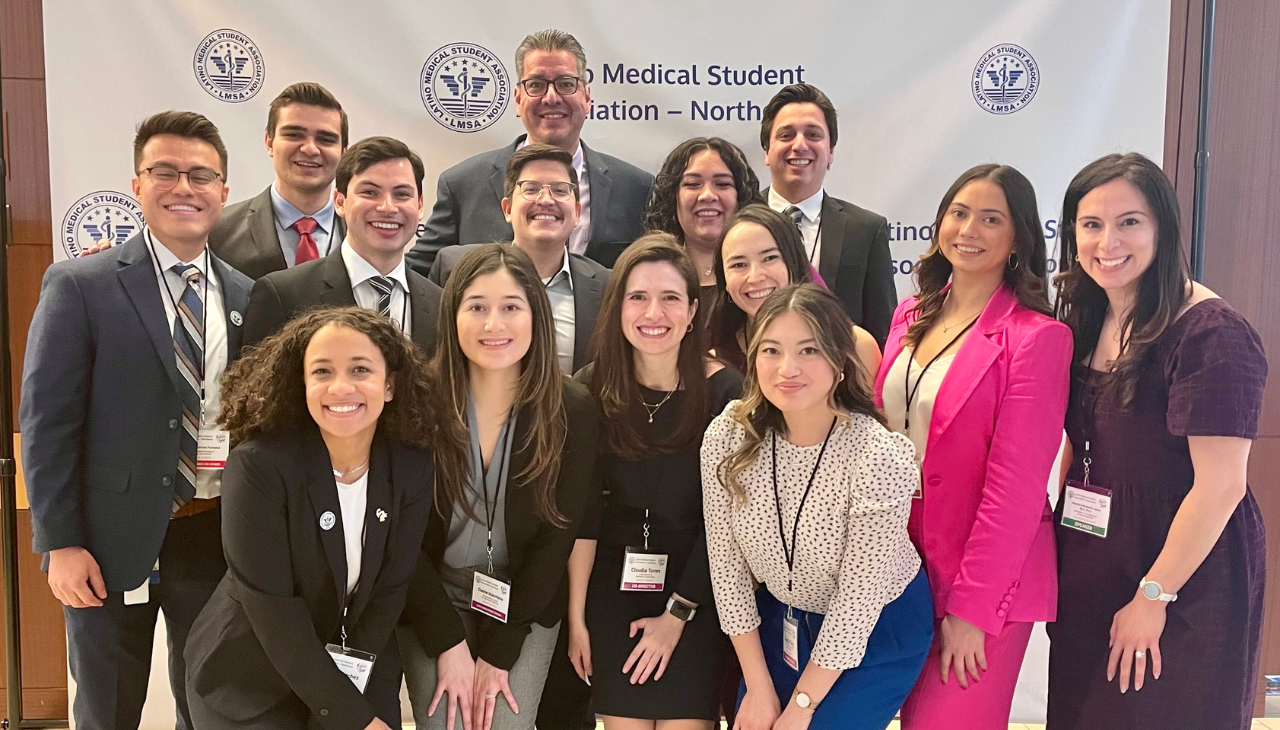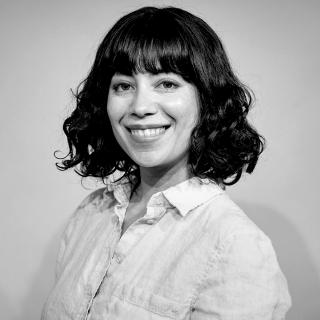
More than 600 Latino medical students attended the LMSA-NE conference in Baltimore
Full of enthusiasm and desire to learn, young Latinos from different parts of the United States came to Baltimore to learn from the experts in medicine.
More than 600 Latino medical students from different parts of the United States came to the Johns Hopkins University School of Medicine in Baltimore to take part in the conference "Un Futuro Para Todos: Highlighting Latino Innovation, Service and Leadership in Medicine," organized by the Latino Medical Student Association-Northeast (LMSA-NE).
From Friday, January 27 through Sunday, January 29, students had the opportunity to participate in more than 40 conferences and workshops given by renowned professors, physicians, deans and experts in academia to address issues related to diversity, inclusion and the importance of representation of the Latino community in medical education.
Dr. John Paul Sanchez, who is the executive associate vice chancellor at the University of New Mexico and the executive director of the Latino Medical Student Association (LMSA), was one of the plenary speakers on Saturday morning. During his presentation, he focused on explaining the benefits of LMSA chapters at universities and how the organization helps Latino students through one-on-one mentoring and the academic support required for the challenging career of medicine.
As Dr. Sanchez explained, 12.9% of allopathic medical students are Hispanic, as are 5.3% of faculty at institutions of higher education. To provide a general context, based on the CENSUS for the year 2021, 18.7% of the U.S. population identified as Hispanic.
“We’re coming from a university that has very little diversity, like I’m the only Hispnaic in my [class] group. Coming here was really heartwarming and it brought tears to my eyes because it’s just really beautiful,” said Camila Grau, one of the students who attended the event.
At the end of his presentation, Dr. Sanchez set as a goal to have LMSA present in 100% of the allopathic and osteopathic medical schools and the establishment of the first bilingual and bicultural medical school. This initiative was strongly endorsed by the students present.
"What words/emotions come to mind when you think of the founding of this school," Dr. Sanchez posted on a large screen in one of the Johns Hopkins classrooms, where students could respond via text message by creating a word cloud on the spot. Among the responses were: "pride", "representation", "essential", "exciting", "culture", among others.
One of the speakers that most caught the attention of the students was Dr. Alfredo Quiñones-Hinojosa, who serves as chair of the Department of Neurologic Surgery at Mayo Clinic's campus in Florida. Although Dr. Quiñones-Hinojosa could not be present in person at the event, his virtual speech about his neurosurgical work on patients in underserved areas around the world deeply touched the emotions of the students present and served as an inspiration for many. The renowned neurosurgeon focused on sharing his experience as founder of the non-profit organization 'Mission:Brain'.
"Traveling around the world and spreading awareness is such an inspiration. This whole workshop is eye opening," one of the event's attendees and pre-med student, Roberny Batista, told AL DÍA.
Another important resource was the workshop offered by Harvard University's Dean of Students, Thomas Dunne. In it, those interested in doing a residency at medical schools had the opportunity to clarify their doubts about the admission and interview process. Among the recommendations, Dunne discussed what a letter of recommendation should have, how to prepare for the interview process and what to do to project your professional future.
One of the tips & tricks he offered for obtaining a letter of recommendation is to keep in mind the following three questions:
1. Who do you ask?
Attending, mentor or Department chair
2. When do you ask?
Core clinical year, during an advanced rotation or few months after a rotation
3. What do you give them?
CV, PS, highlights of your interaction, and a letter writing guide if available
RELATED CONTENT
Dr. Olivia Richamn also gave a workshop on 'Thrivers Guide to Medical School' that had students laughing out loud with her anecdotes as a medical student and the challenges she faced when she was kicked out of medical school. Part of her presentation served to promote her book, which bears the same title as the workshop. Dr. Richman managed to complete her studies in family medicine, a profession she currently practices, and is also a content creator for YouTube.
"As a first generation student, I think events like this are very important. It teaches you about mentorship, guidance, and resources that a lot of students don't have. This event provides all you need to learn [about being a Latino in medical school] in such little time," added Ashley Timmons, another student who attended the LMSA-NE conference.
An event organized by students for students
The LMSA-NE executive board is composed entirely of medical students committed to the diversity and health of the Latino community. What is even more impressive is that, despite their busy academic schedules, it was these same students who organized the 50th annual LMSA-NE conference.
"We really just want to promote a space where all Latinos in their paths from high school, pre medical and college medical students can come together and give them opportunities to network and learn skills. Because that's the future of healthcare... We need people that can take care of the Spanish speaking and Latin America patients," said Carolina Lopez-Silva, conference co-chair and third year medical student at Johns Hopkins.
Jordan Juarez and Claudia Torres, co-directors of the LMSA-NE, explained to AL DÍA the organizational structure they implemented to successfully carry out the conference. The team was divided into groups of 8 to organize the different parts of the conference, such as the research symposium, med sessions, breakout sessions, catering, event promotion, among others. In addition, leaders were selected to lead and make the final decisions for each group.
Torres is a fourth-year medical student at Mount Sinai, while Juarez completed his third year at the Lewis Katz School of Medicine at Temple University and was recently admitted to a year-long research fellowship at the National Institutes of Health (NIH) called the NIH Medical Research Scholars Program (MRSP).
Through MRSP, Juarez joined the Minority Health and Health Disparities Population Laboratory within the National Heart, Lung, and Blood Institute in Bethesda, Maryland. There, his work focuses on utilizing large national data bases to investigate health care disparities in racial and ethnic minority populations across the United States, with an emphasis on understanding the role that social determinants of health have on chronic conditions such as heart disease and diabetes.
Get to know: LMSA-NE
What began as a Civil Rights Movement in 1969, LMSA-NE now stands as an organization with more than 40 medical school chapters and 1300 student members, extending north to Maine, south to Washington, DC, and now to Western Pennsylvania, with new chapters and members joining every year.
Currently, the LMSA is divided by chapters and regions: Midwest, Northeast, Southeast, Southwest and West.
Locally, the universities in Philadelphia with LMSA-NE chapters are: Temple University, Drexel University, the University of Pennsylvania, Philadelphia College of Osteopathic Medicine, and Thomas Jefferson University.











LEAVE A COMMENT:
Join the discussion! Leave a comment.